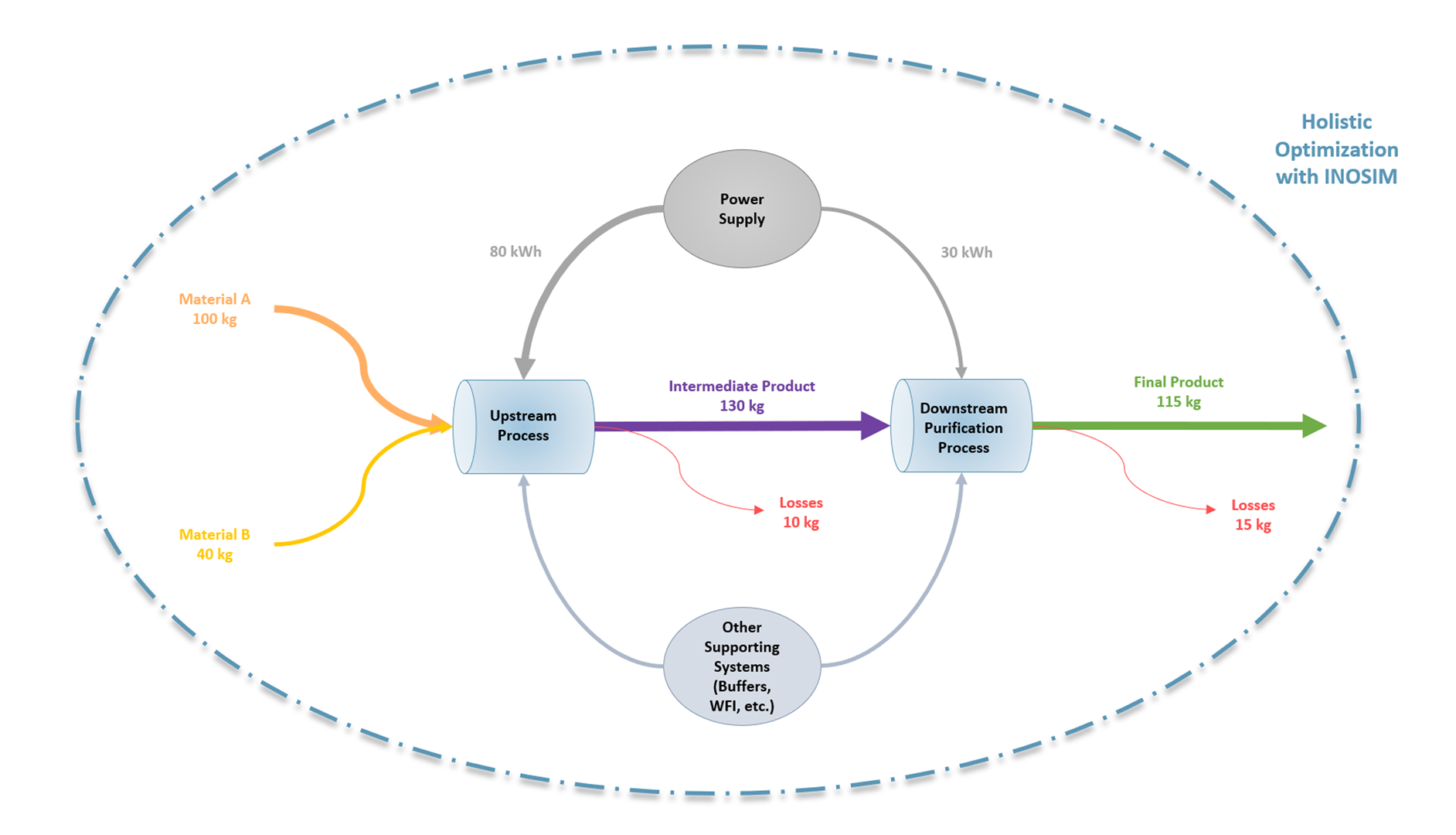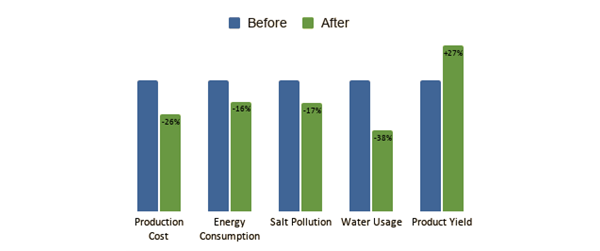How bitop increased yield by 27%
As critical as highly efficient production practices might be to the life sciences industry, the tendency is to optimize bioprocesses by evaluating single-unit operations individually, rather than considering how they interact with one another. To help bitop AG combat high product losses, utility usages, and wastewater for one of its flagship products, INOSIM took a more holistic approach, using advanced process simulation to uncover downstream ecological and economic optimizations.

Challenges
- Limited insight into process interdependencies
- Lack of depth for testing unit operation combinations
- Poor visibility into upstream impact of dynamic process changes
The bitop team needed to increase product yield by curbing product loss, high energy consumption, and unacceptable wastewater and salt pollution for the bioprocesses used to create its Ectoin® product. However, their focus on optimizing single-unit operations within their downstream purification process – without considering the effects of upstream process variations and resource demands – proved insufficient in delivering these results. They needed more dynamic testing of unit operation combinations, as well as better visibility into process interdependencies.
Solutions
- Integrated a model library for more detailed calculations and simulations
- Evaluated and improved key procedures and processes
- Identified root cause of yield loss
INOSIM built and validated a precise, holistic model of bitop’s Ectoin® production. For this model, INOSIM’s extensive library of recipe modules was used to model single-unit operations, as well as customized modules for specific unit operations. The model covers the complete downstream purification process, including complex interdependencies and utility systems. Our simulation studies revealed the root cause of yield loss and potential for reduction in waste and energy usage. In close cooperation with bitop’s team, numerous process alternatives were identified, tested, and evaluated. The simulations informed bitop’s decisions to: change their single-step microfiltration procedure into a multi-step procedure, leading to an improved ratio of product to water; invest in modern crystallization equipment to reach lower operating temperatures and achieve higher yields; and enlarge the surface area of the electrodialysis membrane to again achieve higher yields.

Results
- Optimized Ectoin® production processes based on simulations and analysis
- Identified viable candidates for subsequent optimization projects
- Created a holistic simulation model that can be used for performance measurement and analysis well into the future
Based on the insights revealed by our highly accurate, dynamic simulation model, the bitop production management team implemented a number of optimizations that led to a more sustainable, cost-efficient scale-up of their processes. These simulations also uncovered future pilot projects that could be deployed to further optimize their process. Finally, now that the bitop team has a working simulation model that provides detailed mass and energy balances, they can easily measure the performance of their plant in the future by simply updating the model.

Have any questions or want to know more about this topic? Contact us





